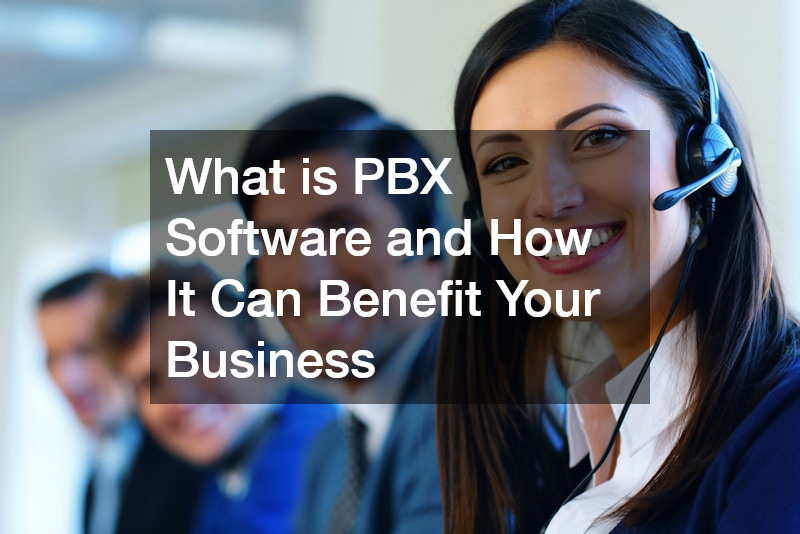
In the realm of modern business communication, PBX software stands as a pivotal tool for streamlining operations and enhancing connectivity. As businesses seek more efficient ways to manage communication, understanding PBX software becomes increasingly relevant. This article will delve into the essence of PBX software, its workings, and the multitude of benefits it offers to businesses.
Video Source
PBX software, or Private Branch Exchange software, is an organizational telephony system enabling efficient management of incoming and outgoing calls. By allowing free internal communication among users while connecting to the public switched telephone network for external calls, PBX software optimizes business interactions. This system essentially acts as a centralized platform to manage phone lines, reducing the need for individual lines.
PBX systems originated as manual switchboards that required human operators to route calls within businesses. Over time, these systems evolved with advancements in technology, transitioning from mechanical to digital and eventually to VoIP-based systems. As businesses continue to adopt internet-based solutions, PBX systems have adapted to become more versatile and cost-effective.
Today's businesses have access to a variety of PBX systems, including analog, digital, and hosted or virtual PBX solutions. Analog PBX is the traditional system, relying on physical copper wires and switchboards, while digital PBX uses electronic switching for more efficient call management. Hosted or virtual PBX, often based on VoIP technology, leverages cloud computing to offer scalable and flexible communication solutions.
At the core of PBX systems lies a sophisticated architecture comprising several key components, like switchboards and telephony interfaces. These components work in harmony to manage and route both inbound and outbound calls efficiently within an organization. The integration of these elements into one cohesive system allows for seamless communication, which can be adapted to meet the unique needs of each business.
PBX systems are adept at managing call routing and switching, ensuring efficient allocation of phone lines and resources. By implementing advanced algorithms, the software routes calls to their appropriate destinations, whether internally or externally, while minimizing delays. This ability to manage multiple calls simultaneously is a cornerstone of PBX efficiency in business environments.
Modern PBX systems are designed to integrate with a wide range of business technologies, including CRM systems and unified communications platforms. Such integration allows businesses to enhance their operational workflows, providing synchronized data exchanges and communication streams. As a result, businesses experience improved customer interactions and more effective internal communications.
One of the primary benefits of PBX software is the cost efficiency it offers, particularly with VoIP and hosted solutions. By reducing the need for extensive physical infrastructure, businesses can enjoy lower operating costs and minimize expenses associated with traditional telephony. Additionally, many PBX solutions offer competitive pricing structures tailored to business needs.
PBX systems are inherently scalable, allowing businesses to adjust system capacity as they grow. This flexibility extends beyond just user numbers; PBX software can adapt in terms of features and services, ensuring continuity in evolving business environments. Businesses can tailor their PBX systems to coincide with operational changes, thus supporting seamless growth and development.
Beyond basic call management, PBX software provides businesses with a suite of advanced communication features. Features like call forwarding, voicemail, and conference calling enhance both internal and external business operations. These tools not only improve efficiency but also elevate communication standards, enabling comprehensive strategic interactions across various business levels.
In conclusion, PBX (Private Branch Exchange) software stands out as a strategic asset that can significantly enhance business communication practices. By streamlining call management, facilitating seamless internal and external communication, and offering a range of cost-effective solutions, PBX systems are increasingly vital in the modern business environment. Their ability to integrate with cloud-based services, enhance scalability, and improve call quality positions them as key tools for organizations aiming to stay competitive in today’s fast-paced market. Furthermore, PBX systems can be tailored to suit businesses of all sizes, offering flexible solutions that grow alongside evolving company needs.
Adopting PBX software goes beyond just upgrading technology—it represents a proactive investment in the future of business operations. It enables businesses to unlock new levels of operational efficiency, improve customer satisfaction with quicker response times, and foster enhanced collaboration among teams, regardless of location. In an increasingly remote and globalized world, PBX systems break down barriers of communication, offering businesses the connectivity they need to thrive. By embracing this transformative technology, companies are not only improving their internal operations but also positioning themselves for long-term success in an increasingly digital landscape.
.